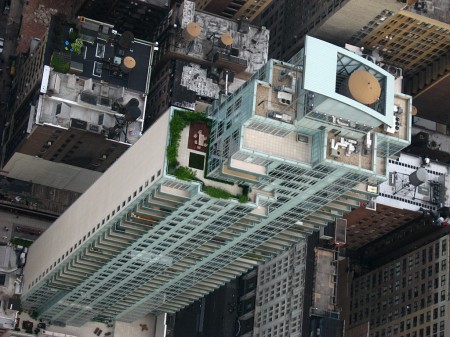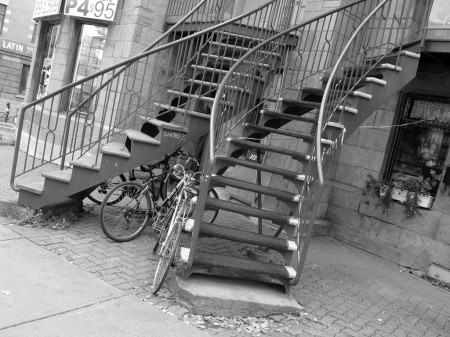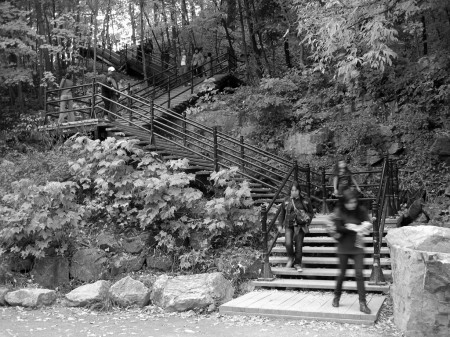
Having spent much of the last week waiting for or riding on Greyhound buses, all the news stories about the man who was beheaded on one caught my eye. Some people are calling for airport-style screening procedures for buses. There are at least two reasons for which this is inappropriate.
The first concerns the mobility of buses. With a plane under their control, hijackers can fly to distant states that might assist them. The only way to stop them is to shoot down the plane, killing everyone on board. Buses are comparatively easy to stop. You can shoot out the tires, put spiky strips across the road, or simply block the route with something heavy. Nobody is likely to escape to sunny Cuba on a hijacked bus. Another element of mobility is multiple stops. Bus companies would need to (a) put security at every permitted stop (b) only allow people on at big bus stations or (c) allow some unscreened people aboard buses. Someone determined to commit a violent act on a bus could take advantage of (c), while (a) and (b) would seriously inconvenience people at many smaller stops.
The second is that someone in control of an ordinary plane can kill a lot of people. They can certainly kill everyone on board. They can also kill many people on the ground. Similar risks do not exist in relation to buses. At the very most, someone with a machine gun or explosive device could kill most of the people on board. There is no clear situation where being on a bus increases the amount of harm a person can do. Someone who wants to kill a particular person can do it at least as easily off a bus as on it; the same is true for someone who just wants to kill people at random.
There is certainly a certain risk of violence on board a bus, but that does not mean that excluding weapons is a sensible use of resources. For one thing, it would increase bus fares substantially and require the redesign of bus stations. For another, it isn’t clear that it wouldn’t simply displace any violence that was to occur to a different venue. Living among humans naturally entails risks, which we can mitigate to greater or lesser degrees in various ways. Reducing risk always involves some kind of cost: sometimes in money, sometimes in freedom. The level of news coverage this incident is receiving highlights just how slight a risk this actually is. The kind of risks that make the news aren’t the sort to worry about, since they are rare by definition. It’s the stuff that is too common to constitute news that you really need to fear: things like domestic violence and heart disease, for instance. Screening bus passengers is not an intelligent use of our resources.





